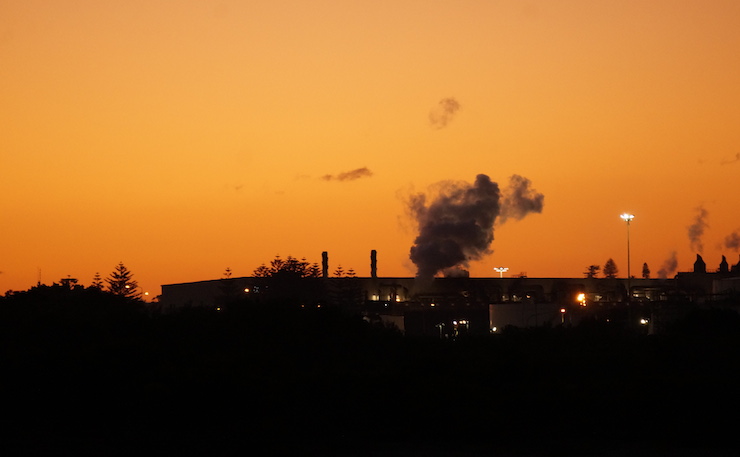The President of the Australian Academy of Science, Professor Andrew Holmes, argues fossil fuel divestment can be politically hot but is really about scientists discharging their responsibility as leaders in society. Thom Mitchell reports.
The growing fossil fuel divestment movement yesterday welcomed a trifecta of influential institutions into the ethical investment fold, with Melbourne City Council, the Australian Academy of Science, and the National Tertiary Education Union all pledging to put their money where their mouth is on climate change.
According to climate advocacy group 350.org, the organisations join over 450 global institutions in their decision to pull out of fossil fuel stocks. Yesterday’s announcements follow the recent divestment of Newcastle Council’s $269 million portfolio, the Australian Capital Territory government’s decision to phase out fossil fuels, and the Australian National University’s pledge to drop investments in coal.
Universities in particular have been a target for the fossil divestment movement, and the sector’s union has become the first in the nation to divest. The National Tertiary Education Union’s President, Jeannie Rea, said given the education sector “is a leader when it comes to teaching and researching on climate change and sustainability, it makes sense to ensure the union’s investments are not benefiting companies that are contributing to an unsustainable future”.
“The science is unequivocal. To ensure a safe future, we must keep fossil fuels in the ground [so]investment in coal, oil and gas is not an option,” Rea said. She said the union will look to invest in renewable energies like wind and solar.
The union leader said that divesting “sends a powerful signal to polluters and politicians that climate action is non-negotiable”.
But when Professor Andrew Holmes announced the Australian Academy of Science’s decision to divest in Hobart yesterday, he stressed the “apolitical” nature of the decision to cut direct links to fossil fuels.
“It’s a decision that we can make on rational grounds,” Professor Holmes said.
“This is a small step that the Academy can take – but it is a step towards discharging our responsibility as scientists, and as leaders in society.”
“Is the value that could be derived from fossil fuel activities sustainable in the long term? Certainly not from the view of the Earth system, and probably not financially either,” he said.
The Melbourne City Council last night adopted a similar view, when it committed not only to continuing its policy of not directly investing in fossil fuels or fossil fuel aligned companies, but also to seeking out investments in clean energy.
“To transition to a clean energy future is not only good for the environment, it is a very smart long-term business decision,” said Councillor Arron Wood, who moved last night’s motion. The Council will also ask its default superannuation fund, Vision Super, to offer members a fossil fuel free option.
As of last month, according to a report from Arabella Advisors, around $2.6 trillion has been moved out of fossil fuel stocks as a result of the global divestment movement.
Donate To New Matilda
New Matilda is a small, independent media outlet. We survive through reader contributions, and never losing a lawsuit. If you got something from this article, giving something back helps us to continue speaking truth to power. Every little bit counts.




